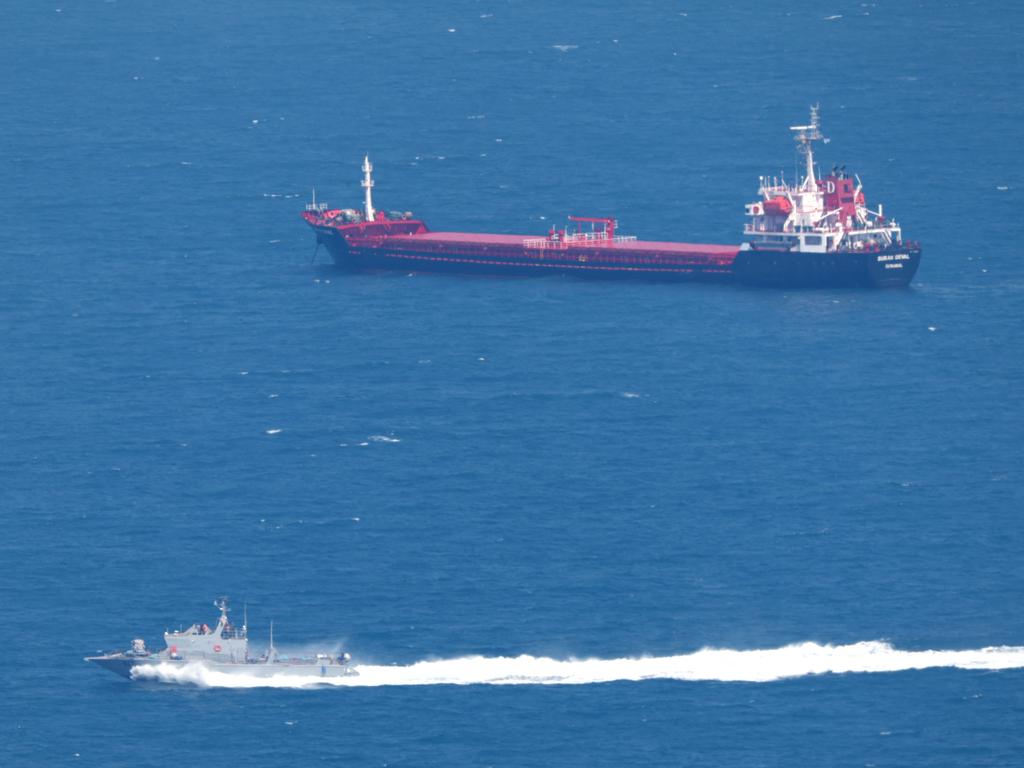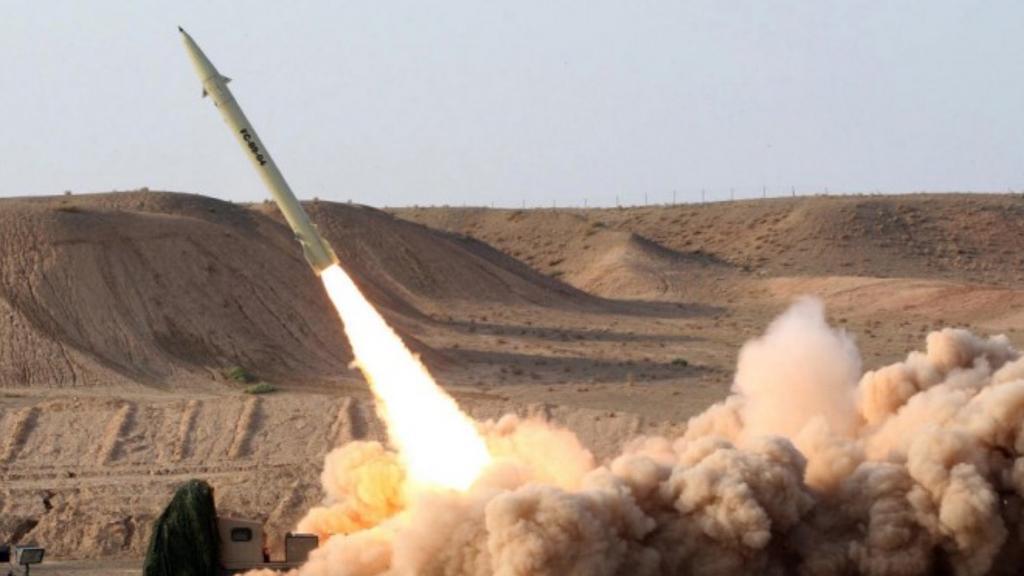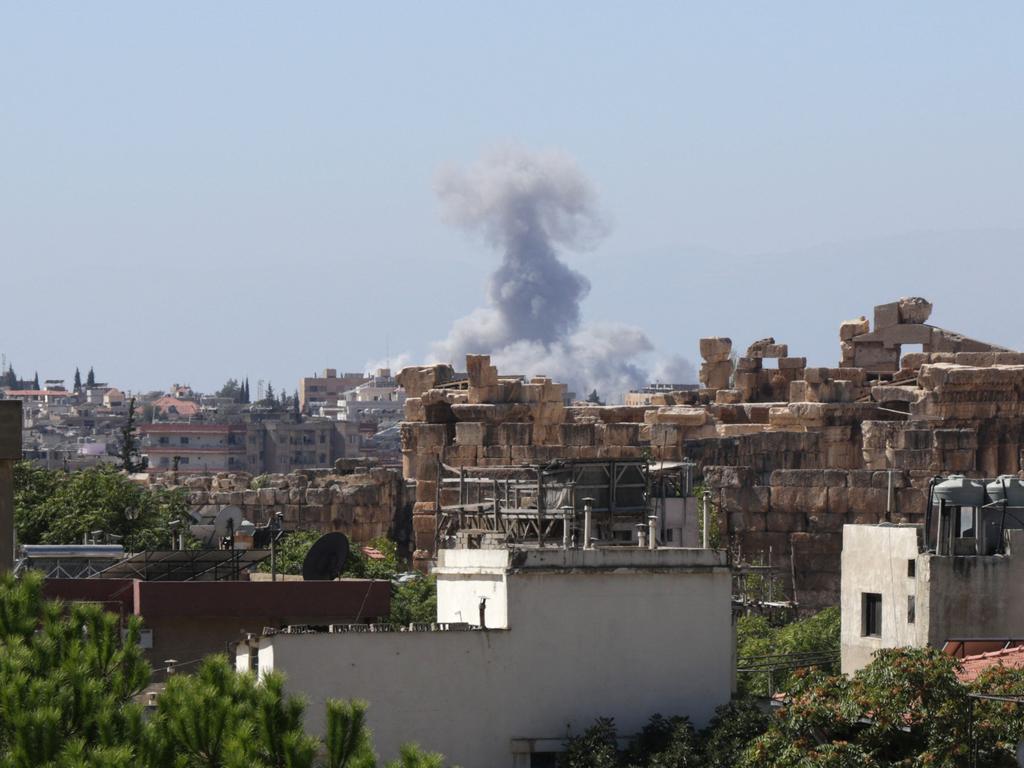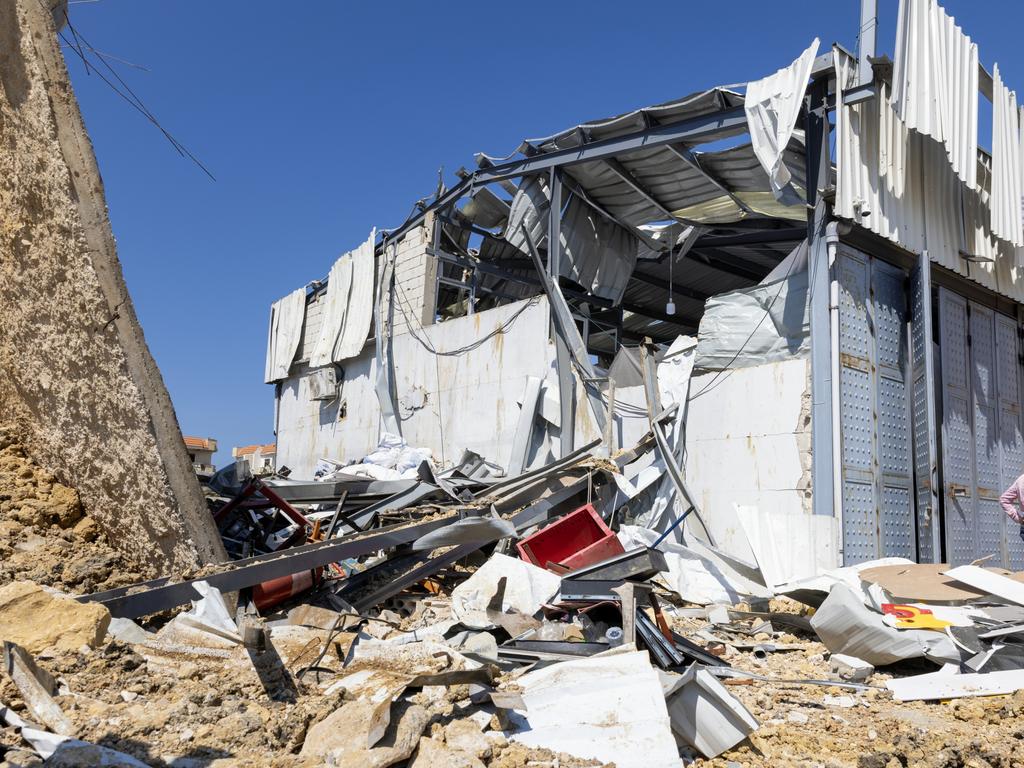The Middle East is no stranger to conflict, with tensions flaring regularly between state and non-state actors. However, the recent developments between Israel and Hezbollah have marked a significant escalation that has drawn international attention and raised alarms of a potential full-scale war. The launch of a ballistic missile by Hezbollah targeting Tel Aviv has ignited fears of a broader regional conflict that could have far-reaching implications for both security and diplomacy in the region.
As Israel retaliates with a series of airstrikes on Hezbollah targets in Lebanon, the specter of war looms large. The dynamics at play in this particular conflict, the strategic objectives of the involved parties, and the reactions from the international community are critical in understanding the potential outcomes and long-term impacts of this confrontation. This article delves into the security situation, analyzing the military developments, and the broader diplomatic implications of this latest flashpoint.

The Immediate Security Situation
On Wednesday, the Israeli Defense Forces (IDF) confirmed that Hezbollah had launched a ballistic missile aimed at Tel Aviv, which was intercepted by Israel’s advanced air defense systems. This marked the first time Hezbollah, the Lebanese militant group backed by Iran, had managed to strike so deeply into Israeli territory, signaling a bold escalation in the ongoing hostilities between the two adversaries.
Lieutenant Colonel Nadav Shoshani, a spokesman for the IDF, stated that Hezbollah’s actions were a clear attempt to escalate the situation, with the missile being designed to inflict “mass casualties.” Although the missile was intercepted, the psychological and political impact was profound. The fact that Hezbollah was able to reach Tel Aviv with such a weapon demonstrates the group’s growing military capabilities and resolve.
In response, Israel has launched extensive airstrikes on Hezbollah targets in southern Lebanon and the Beqaa Valley. These strikes, according to the Israeli military, have targeted over 60 sites used by Hezbollah’s intelligence division, including key infrastructure and missile launchers. The violence has already claimed the lives of at least 51 people and injured more than 220, according to Lebanon’s health ministry.
As Israel’s air force continues its bombardment, the possibility of a ground invasion has been openly discussed. IDF Chief of Staff, Lieutenant General Herzi Halevi, has instructed troops to be ready for “possible entry” into Lebanon. The prospect of Israeli troops crossing the border into Lebanon would represent a significant escalation and could lead to a prolonged and devastating conflict.
Hezbollah’s Strategy and Military Capabilities
Hezbollah’s decision to launch a ballistic missile at Tel Aviv is a calculated move that is likely part of a broader strategy to test Israel’s resolve and rally domestic and regional support for its cause. Over the years, Hezbollah has built up an extensive arsenal of rockets and missiles, many of which are supplied by Iran. The use of ballistic missiles in this latest attack is a stark reminder of the group’s growing military sophistication.
The missile used in the attack, reportedly a Fateh-110, is capable of carrying a warhead of up to 500 kilograms of explosives. This type of missile is designed to cause significant damage and casualties, making it a potent weapon in Hezbollah’s arsenal. By targeting a densely populated area like Tel Aviv, Hezbollah is sending a message that it is willing to escalate the conflict to unprecedented levels.
Hezbollah’s leader, Hassan Nasrallah, has previously warned that his group would retaliate against Israeli attacks on Lebanese territory, and this missile strike could be seen as a fulfillment of that promise. Nasrallah’s rhetoric often emphasizes resistance against Israeli aggression and portrays Hezbollah as the defender of Lebanon and Palestine. This narrative has helped the group maintain a significant level of support in Lebanon, despite its controversial role in the Syrian civil war and its ties to Iran.
From a military perspective, Hezbollah’s strategy appears to be one of asymmetrical warfare, utilizing its missile capabilities to target Israeli cities while avoiding confrontations with Israel’s technologically superior army. By doing so, Hezbollah seeks to challenge Israel’s security while limiting its exposure to large-scale military retaliation. However, with Israel now launching extensive airstrikes, Hezbollah’s ability to sustain a long-term missile campaign may be tested.

Israel’s Military Response
Israel’s response to the missile attack has been swift and decisive. The Israeli Air Force has been conducting round-the-clock airstrikes on Hezbollah targets in southern Lebanon, including key missile launch sites and intelligence facilities. According to IDF reports, these strikes are designed to degrade Hezbollah’s military infrastructure and reduce its ability to launch further attacks.
Israeli officials have made it clear that they view Hezbollah’s missile attack as a significant escalation that warrants a strong military response. Prime Minister Benjamin Netanyahu, speaking at a press conference, warned that Israel would “do whatever is necessary” to defend its citizens and prevent Hezbollah from threatening Israeli territory. The Israeli government has also made it clear that it holds the Lebanese government responsible for Hezbollah’s actions, given the group’s political influence in Lebanon.
One of the key challenges for Israel in this conflict is the nature of Hezbollah’s military infrastructure. Much of the group’s missile stockpiles and command centers are located in civilian areas, making it difficult for the IDF to target them without causing collateral damage. This complicates Israel’s military campaign, as it seeks to avoid civilian casualties while still neutralizing the Hezbollah threat.
At the same time, Israel’s military is preparing for the possibility of a ground invasion. If Hezbollah continues to launch missiles into Israeli territory, the IDF may decide that a ground incursion is necessary to dismantle Hezbollah’s military capabilities. Such an invasion would likely involve heavy fighting in southern Lebanon, an area that has historically been a stronghold for Hezbollah.
Regional Implications and the Role of Iran
The conflict between Israel and Hezbollah is not occurring in isolation. Hezbollah is widely recognized as a proxy of Iran, and the group’s missile capabilities are believed to be largely supplied and financed by Tehran. This makes the current conflict part of a larger regional power struggle between Israel and Iran, with Lebanon serving as the latest battleground.
Iran’s influence in Lebanon has grown significantly in recent years, largely through its support for Hezbollah. Tehran views Hezbollah as a key component of its strategy to project power in the region and challenge Israeli and American interests. The missile attack on Tel Aviv can therefore be seen as part of Iran’s broader efforts to destabilize Israel and assert its influence in the Middle East.
For Israel, the threat posed by Hezbollah is inseparable from its broader concerns about Iran’s regional ambitions. Israeli officials have repeatedly warned that Iran is seeking to encircle Israel with a network of proxy forces, including Hezbollah in Lebanon, Hamas in Gaza, and pro-Iranian militias in Syria. The missile attack on Tel Aviv reinforces Israel’s belief that Iran is actively working to undermine its security and destabilize the region.
The conflict also has implications for Israel’s relationships with other regional actors. Saudi Arabia and the Gulf states, which have traditionally been wary of Iran’s influence in Lebanon, may see the current conflict as an opportunity to support Israel’s efforts to weaken Hezbollah. In recent years, there has been a growing alignment between Israel and some Arab states, driven in large part by shared concerns about Iran. This conflict could further strengthen those ties, particularly if it escalates into a broader regional war.

The International Diplomatic Response
The international community has been quick to respond to the escalating conflict between Israel and Hezbollah. The United Nations Security Council convened an emergency session to discuss the crisis, with UN Secretary-General António Guterres calling for immediate de-escalation and warning that the situation could spiral out of control.
The United States, a key ally of Israel, has expressed strong support for Israel’s right to defend itself but has also urged both sides to exercise restraint. National Security Council spokesman John Kirby emphasized that there is still “time and space for a diplomatic solution” to prevent the conflict from escalating into an all-out war. The U.S. is likely to play a central role in any efforts to broker a ceasefire, given its close ties to both Israel and Lebanon.
However, finding a diplomatic solution may prove difficult. Hezbollah’s ties to Iran complicate the situation, as Tehran has little incentive to rein in its proxy group while it continues to challenge Israeli and American interests in the region. Furthermore, the Lebanese government, which is heavily influenced by Hezbollah, may lack the political will or capability to take meaningful action against the group.
European leaders have also expressed concern about the escalating violence, with French President Emmanuel Macron calling for an immediate halt to hostilities and offering to mediate between the two sides. France has historically played a significant role in Lebanese politics and could be well-positioned to facilitate negotiations, although its influence has waned in recent years.
Russia, which has maintained close ties with both Israel and Hezbollah, has called for restraint but has refrained from taking a more active role in mediating the conflict. Moscow’s primary interest in the region lies in maintaining its influence in Syria, where it has been a key ally of the Assad regime. While Russia has supported Hezbollah in the past, its relationship with Israel has grown stronger in recent years, making it unlikely that Moscow will take sides in the current conflict.
The Humanitarian Impact
As the conflict escalates, the humanitarian situation in Lebanon is deteriorating rapidly. Lebanon is already grappling with a severe economic crisis, with the country’s currency collapsing, widespread unemployment, and a crumbling healthcare system. The Israeli airstrikes on Hezbollah targets have compounded the suffering of ordinary Lebanese citizens, particularly in southern Lebanon and the Beqaa Valley, where much of the fighting is concentrated.
According to Lebanese health officials, the Israeli airstrikes have killed at least 51 people and injured more than 220. Many of the victims are civilians, as Hezbollah’s military infrastructure is often located in residential areas. The destruction of homes, schools, and hospitals is exacerbating the humanitarian crisis in Lebanon, which has already been strained by the influx of Syrian refugees and the ongoing political turmoil.
International aid organizations are calling for an immediate ceasefire to allow for the delivery of humanitarian assistance to affected areas. The United Nations has warned that the conflict could lead to a “humanitarian catastrophe” if it continues to escalate, particularly given the fragile state of Lebanon’s economy and infrastructure.
In Israel, the missile attacks have forced many residents of Tel Aviv and other cities into bomb shelters. While Israel’s advanced air defense systems have intercepted most of the missiles, the psychological impact of living under the constant threat of attack is taking its toll on the civilian population. Schools and businesses in Tel Aviv and other affected areas have been closed, and many residents have fled to safer areas in the north of the country.

The conflict between Israel and Hezbollah represents a dangerous escalation in an already volatile region. Hezbollah’s decision to launch a ballistic missile at Tel Aviv has significantly raised the stakes, and Israel’s military response has been swift and forceful. As the violence continues to escalate, the potential for a broader regional conflict looms large.
The international community is calling for restraint and urging both sides to seek a diplomatic solution, but the deep-rooted tensions between Israel and Hezbollah, as well as the influence of Iran, make it unlikely that a quick resolution will be found. The humanitarian impact of the conflict is already severe, particularly in Lebanon, and the situation is likely to worsen if the fighting continues.
For now, the world watches and waits, hoping that cooler heads will prevail before the conflict spirals out of control. But as both Israel and Hezbollah show no signs of backing down, the path to peace seems more elusive than ever.


